My first thought after watching Nicole Arbour’s “Dear Fat People” video is that she’s basically a f***ed up version of Jenna Marbles.
While Jenna vlogs about things girls can relate to, like why it takes girls so goddamn long to get ready in the morning, Nicole vlogs about how she absolutely hates fat people (and why fat-shaming is 100% ok).
I’m not gonna lie — I’ve definitely looked at some people, the ones Nicole calls “ooooobese,” and thought, “Oh thank God I’m not as fat as they are.”
I’ve definitely felt some of the frustration that she expresses. Why do they get special privileges when they’re “disabled” by their own fat?
I come from a family where the belief is that you get out of your body what you put into it. So yes, technically, obesity is your problem and your problem alone. And you should have to solve it, not us.
But the way she goes about giving this “real talk” is kind of messed up.
First of all, any type of shaming is not ok. Not healthy shaming, not fat shaming, not body shaming, not food shaming. No one should feel ashamed of their bodies, even if they want to change it.
Even though Nicole very clearly specifies her target (not people who are a little on the heavier side, not people who have medical conditions that cause them to be heavier, but the “35% of Americans who are obese”), that doesn’t mean it doesn’t affect everyone else.
Fellow YouTuber Grace Helbig posted a video in response, saying that Nicole’s video was a trigger for the body image issues she’s had in the past. Grace says, “When you tell someone to stop being fat, what you’re really seeming to say is stop being a human being.”
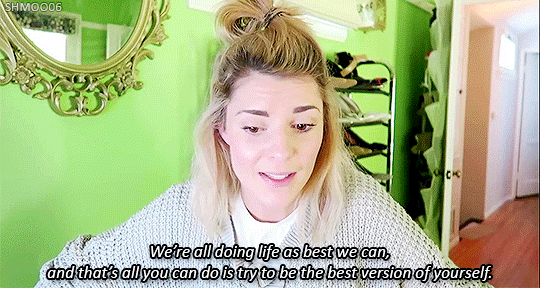
GIF courtesy of tumblr.com
Fat-shaming is not ok, and not just because it spawns a waterfall of body image issues.
Everyone’s entitled to their opinion, so here’s mine:
Losing weight is not the same for everyone.
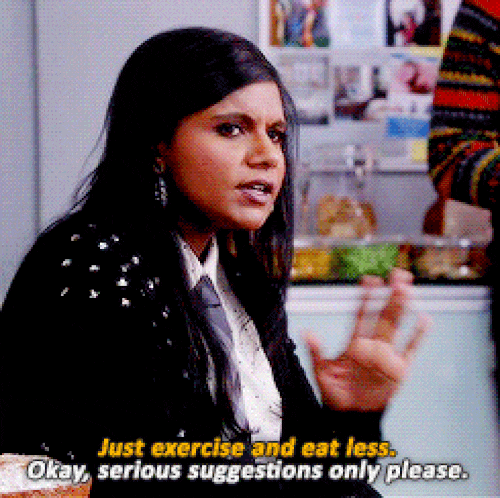
GIF courtesy of tumblr.com
Nicole, think about this — it’s already hard enough to lose weight when you’re a “normal” sized person. Trust me.
Half the conversations I’ve had with certain people are about how much easier it is for guys to lose weight and how hard it is for us girls. As someone who’s gone from 96 pounds to 152 pounds and everywhere in between, I can tell you there’s a huge difference between exercising when you’re 152 pounds versus when you’re 96 pounds.
And when you’re big enough to have that actually impair your life, for a YouTuber to make a f***ing video shaming you… Yeah, that has to blow. Exercising is harder. Progress is slower. It takes longer to change your eating habits. Not saying it can’t be done, but that you, Nicole, are by no means making it any easier for those people you’re shaming.
No, fat-shaming will not shame them into losing weight. It’ll probably actually do the opposite, like Whitney Thore says.
Big-boned is actually a thing.
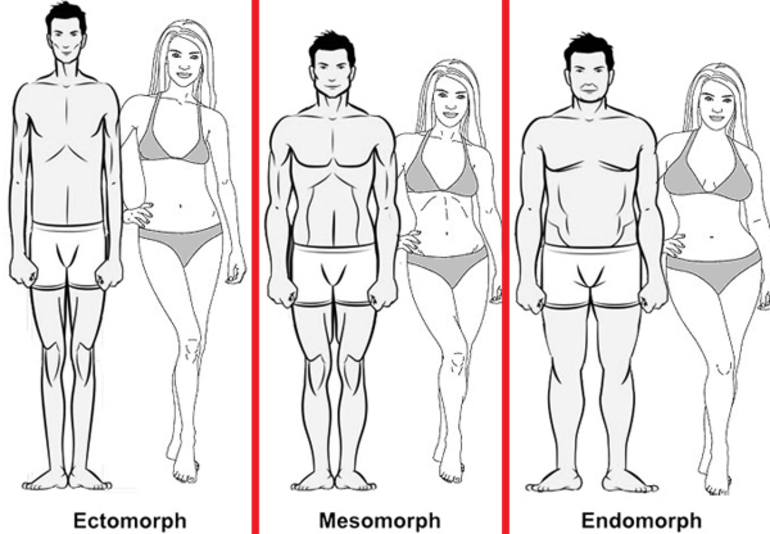
Photo courtesy of runlikeagirl.wordpress.com
Nicole goes on to say, “Big-boned isn’t a thing.”
“Big-boned” may or may not be a thing, but people are definitely born differently. There are three body types: endomorph, ectomorph and mesomorph.
Endomorphs are genetically on the larger side and have a harder time losing weight. Ectomorphs are on the thinner side and lose weight easily. Mesomorphs are in the middle and build muscle easily. Each body type has a different recommended diet and exercise plan.
So don’t hate on people for their genetics.
Skinny doesn’t mean healthy.
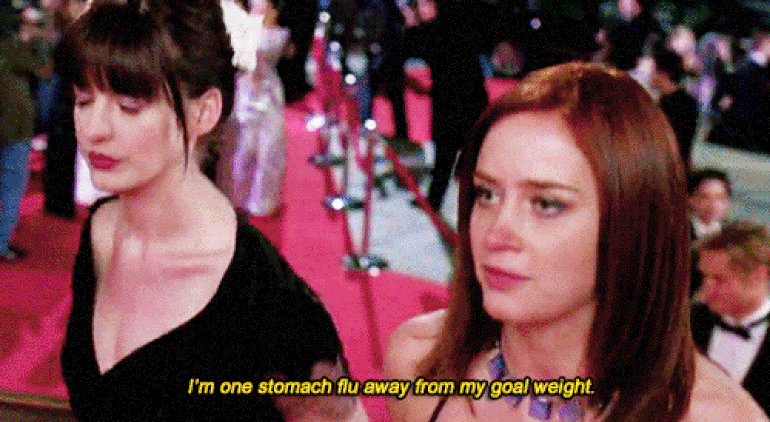
GIF courtesy of tumblr.com
“There are no f***ing skeletons that look like the Michelin man.” Ok, thanks Nicole for stating the obvious.
Maybe this is just the hyper-sensitive girl in me, but I feel like this is a trigger for anyone who’s experienced an eating disorder. Like, yeah, obviously people who are skinny as “skeletons” aren’t as fat as the Michelin man, but that doesn’t mean they don’t feel fat. That is how some eating disorders start in the first place.
Plus-sized doesn’t mean obese.
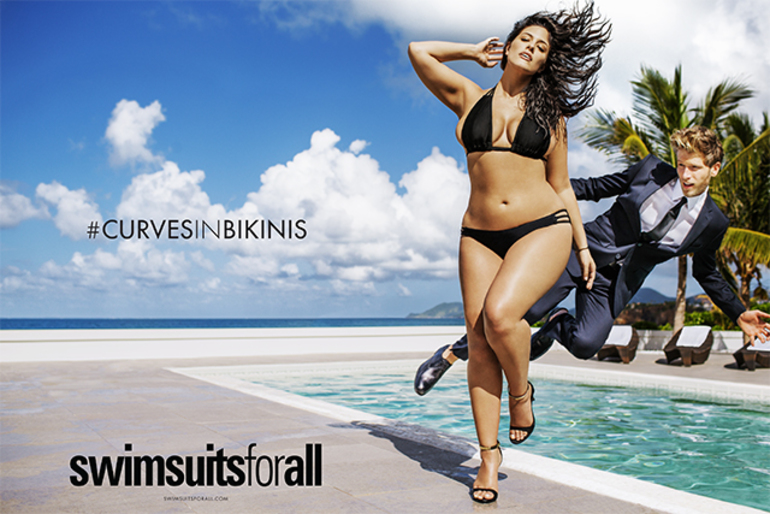
Photo courtesy of etonline.com
“They forgot to tell you that ‘plus-size’ stands for ‘plus heart disease,’ ‘plus knee problems,’ ‘plus diabetes.’” Because all plus-sized people are morbidly obese and terribly unhealthy, right? Wrong.
“Plus-sized” can range from Robyn Lawley to clinically obese people.
Ever heard of Ashley Graham? The size 16 model on the cover of Sports Illustrated? Look at this and tell me she’s bound to suffer knee problems.
What about Amanda Bingson? The badass Olympian who posed naked for the body issue of ESPN, promoting body confidence for everyone all around? She’s an Olympian, for God’s sake.
But Nicole does have one good point: “You just have one body. It has to take you all the way to the end.”
I can’t hate her for fat-shaming, but I can’t love her for it either. There’s a much better way of telling people to be healthier and respect their body. It’s the very thing Nicole scoffs at — body positivity.
It’s wrong to say that “fat” people don’t love their body. It’s wrong to say they shouldn’t. And if they want to lose weight, it should be because they’re thinking about how it will affect their health and promote even more body positivity, not because they’re shamed into it.
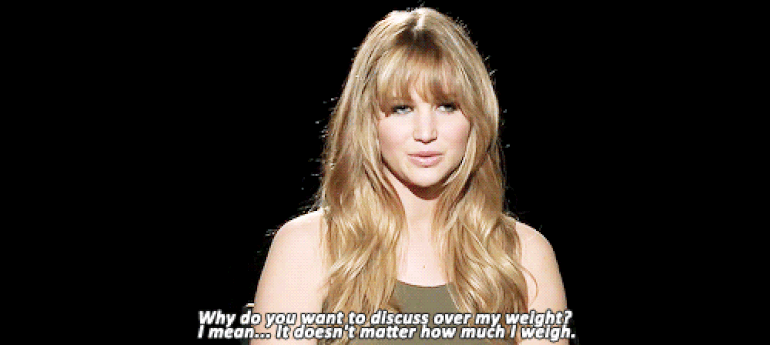
GIF courtesy of tumblr.com


